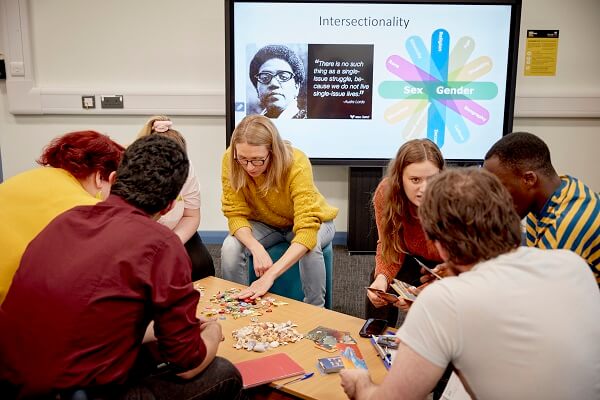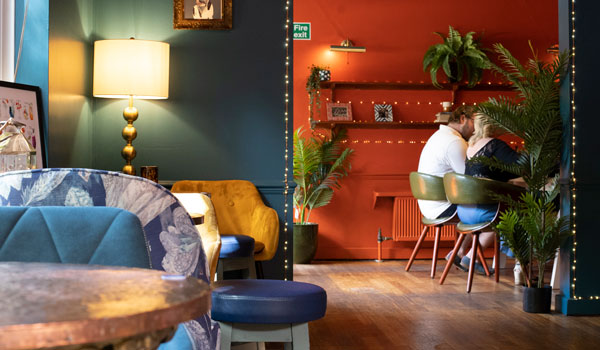Counselling and Psychotherapy - MSc
Make a difference to the lives of others by gaining the knowledge skills and experience to practice as a professional counsellor. Our British Association for Counselling and Psychotherapy (BACP) accredited MSc combines academic study with counselling skills practice, facilitating your personal and professional development as well as offering you a grounding in research methodology.
Please note, applications are now closed for September 2024 entry. Applications for 2025 entry will open 1st November 2024 and close 1st March 2025.
Month of entry
- September
Mode of study
- Full time, Part time
Fees for 2024/25 academic year
- UK - Full time £12,700 per year. Part time £7,000 per year.
International - £24,100 per year.
Duration of study
- Full time 1 year, Part time 2 years
Why study Counselling and Psychotherapy at Keele University?
Accreditation and professional recognition
Both the full-time and part-time MSc in Counselling and Psychotherapy programmes are accredited by the British Association for Counselling and Psychotherapy (BACP).
This means that students who successfully complete the programme gain automatic entry onto the BACP register.


"This programme encourages students to think critically, challenge their beliefs, and develop personally in order to make well rounded counsellors."
Our expertise
There is a wealth of therapeutic experience and knowledge amongst our core team. You will be taught by qualified counsellors who have undertaken training in person-centred/humanistic counselling and have experience of working in a variety of therapeutic settings including the NHS, the voluntary sector, private practice and in education.

Supporting you throughout your studies
Throughout the programme you will have access to a robust support system including an academic mentor, tutor groups, personal development/process groups, a dissertation supervisor, an independent supervisor during placement, an independent personal therapist, counselling placement officer, Student Services, disability and inclusion support, counselling and mental health support.
Keele Postgraduate Association
Keele University is one of a handful of universities in the UK to have a dedicated students' union for postgraduate students. A fully registered charity, Keele Postgraduate Association serves as a focal point for the social life and welfare needs of all postgraduate students during their time at Keele.

Hugely popular, the KPA Clubhouse (near Horwood Hall) provides a dedicated postgraduate social space and bar on campus, where you can grab a bite to eat and drink, sit quietly and read a book, or switch off from academic life at one of the many regular events organised throughout the year. The KPA also helps to host a variety of conferences, as well as other academic and career sessions, to give you and your fellow postgraduates the opportunities to come together to discuss your research, and develop your skills and networks.


